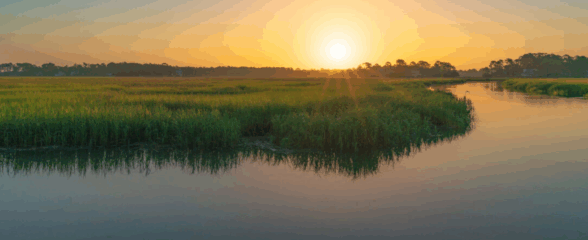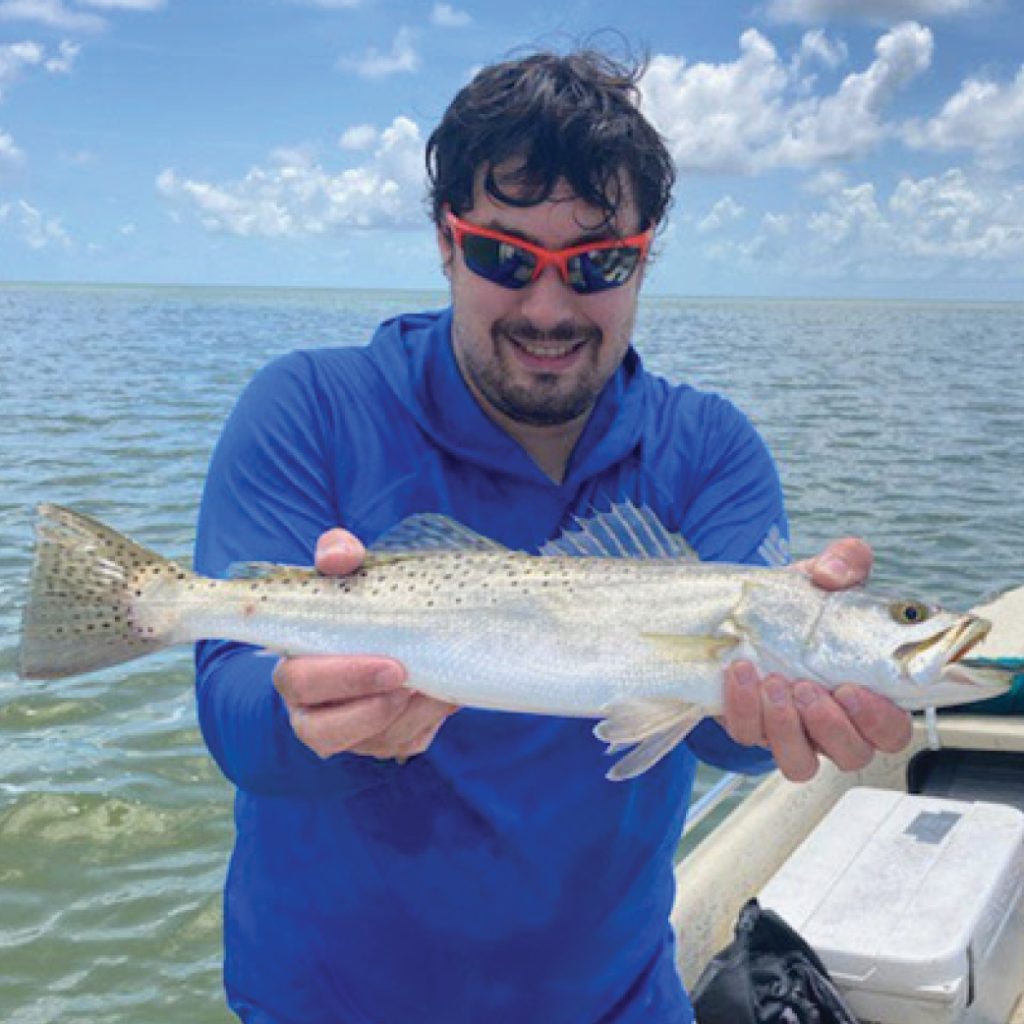Join SECOORA for a webinar titled “It’s hot! How temperature is impacting Spotted Seatrout and seagrass in Florida Bay” on October 26 at noon ET presented by Jonathan Rodemann, Florida International University Ph.D. Candidate.
Jonathan will present preliminary results from a study investigating how temperature drives Spotted Seatrout space use within Florida Bay. Click here to reserve your spot.
Understanding the drivers of animal movement and space use is highly valuable for an appreciation of ecosystem functioning, the provisioning of services, and how to best conserve threatened ecosystems. This is especially true for recreational sportfish in coastal ecosystems, some of the most productive yet anthropogenically degraded ecosystems of the world.
Florida Bay, the largest estuary in Florida, has consistently experienced anthropogenic alteration and degradation since the development of the South Florida canal system in the mid-1900’s. This includes 2 large-scale seagrass die-offs, one in the late 1980’s and one in 2015. It also supports a large recreational sportfishing industry valued at $239 million a year. However, despite the ecological and economic importance of recreational sportfish, the impact of the seagrass die-offs on recreational sportfish movement and space use has never been examined.
Jonathan Rodemann and his team in the Coastal Fisheries Lab at Florida International University are investigating the drivers of Spotted Seatrout space use within Florida Bay. Specifically, they are interested in how temperature drives space use and whether space use is based on temperature, habitat composition, or habitat configuration. This webinar presents preliminary findings from this study.
Click here to reserve your spot for the October 26, 12 PM ET webinar.
Click here to download the flyer.
About the Presenter
Jonathan Rodemann is a 4th year PhD student in the Coastal Fisheries lab at Florida International University. He obtained a Bachelor’s degree in Marine Science from University of Miami and a Master’s degree in Marine Science from Northeastern University. His research interests include seascape and movement ecology, focusing on combining the two to determine how the structure and composition of underwater habitats affect movement and habitat use of fish. His current project looks at how the legacies of a large-scale seagrass die-off impact both the seascape structure and space use of recreational sportfishes in north central Florida Bay.
Click here to reserve your spot for the October 26, 12 PM ET webinar.
Related news

SECOORA Funding Opportunity Announcement: Letters of Intent Solicitation
SECOORA will submit a coordinated regional proposal in response to the anticipated FY 2026 Implementation of the U.S. Integrated Ocean Observing System (IOOS) funding opportunity. Letters of Intent to be considered for inclusion in SECOORA’s full proposal are due September 9, 2025.

SECOORA Hosts the First Surface Elevation Table (SET) Community of Practice Virtual Workshop
The SECOORA SET Workshop was virtual on July 17, 2025. More than 50 Community of Practice members and stakeholders joined this collaborative workshop to discuss SET monitoring, coastal resilience, and data-driven decision making in the Southeast.

The Sounds of the Sound: Connecting the Port Royal Sound Community with What’s in the Water
Port Royal Sound in Beaufort, South Carolina is a thriving haven for animals, plants, and people. Research focused on listening to the animals that live in the Sound – specifically the resident dolphins – connects the community with the underwater world without having to go swimming.

